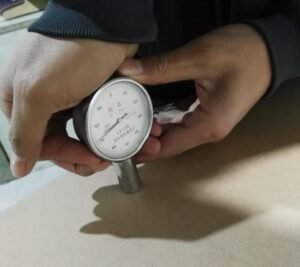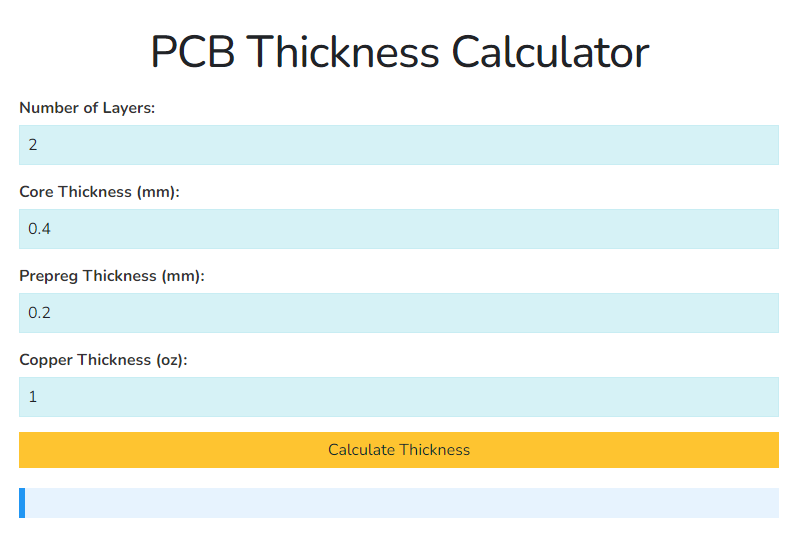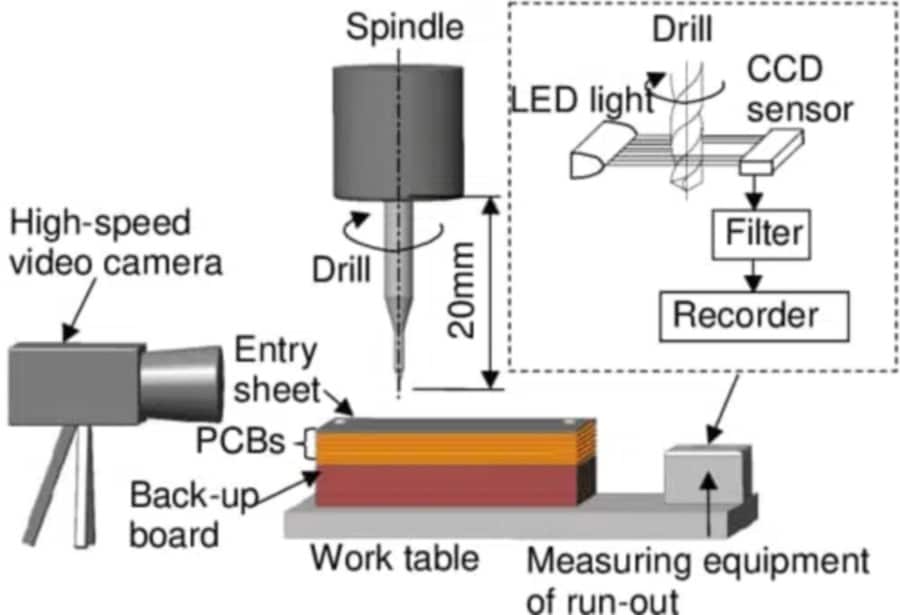Aluminium Drill Entry Material for PCB Drilling
Aluminium drill entry materials for CNC drilling of printed circuit boards is positioned on top of the stack before drilling begins. Its aluminium foil sheet serves as an effective heat sink, helping to dissipate heat during the drilling process. The soft structure of the board provides a stable entry point for the rotating drill bit, enhancing precision drilling.One of the key benefits of using an aluminum entry board is its ability to significantly reduce drill wander, which is crucial when machining Via and buried Via holes in modern multilayer or flexible PCBs. Additionally, this composite sheet board helps minimize burr formation and drill bit breakage, ensuring better overall performance.The board’s flatness tolerance and surface roughness contribute to improved machining quality, while its design also helps prevent pressure foot marks on the PCB surface. Overall, using an aluminum pre-entry board enhances the efficiency and accuracy of the drilling process.
Key Specifications of Aluminium PCB drill Entry Sheets
-
- Alloy:
-
- Commonly used alloy is clad aluminium 1100 thin aluminium sheet and other variants.
-
- Alloy:
-
- Temper:
-
- Typically H18, indicating a high-strength temper.
-
- Temper:
-
- Thickness:
-
- Ranges from 0.12 mm to 0.25 mm.
-
- Thickness:
-
- Dimensions:
-
- Length: Available from 790 mm to 1300 mm, or production by roll.
-
- Width: Standard widths include 1244 mm / 1245 mm, with cut to size aluminium sheet options.
-
- Dimensions:
-
- Tolerance:
-
- Thickness: ±5%
-
- Width: +0.5 / -0 mm
-
- Length: +0.5 / -0 mm
-
- Diagonal line: ≤ 0.5 mm
-
- Tolerance:
-
- Lubricant Coating:
-
- Options include resin lubricant, liquid lubricant, solid lubricant, and oily lubricant.
-
- Lubricant Coating:
-
- Standards Compliance:
-
- Manufactured according to standards such as ISO9001, SGS, and ROHS.
-
- Standards Compliance:
Properties of Aluminium Entry Sheets
-
- Aluminium Content:
-
- High purity with an aluminium content of 99.00%.
-
- Aluminium Content:
-
- Corrosion Resistance:
-
- Excellent resistance to corrosion, enhancing durability.
-
- Corrosion Resistance:
-
- Conductivity:
-
- High electrical and thermal conductivity, making it suitable for electronic applications.
-
- Conductivity:
-
- Density and Plasticity:
-
- Low density with good plasticity allows for various forms through pressure processing.
-
- Density and Plasticity:
-
- Strength and Ductility:
-
- While aluminium has low strength compared to other metals, it exhibits good ductility, allowing for easy shaping and handling.
-
- Strength and Ductility:
Benefits of Using Aluminium Entry Sheets
-
- Improved Accuracy:
-
- Aluminium entry sheets help center the drill bit accurately, reducing the risk of misalignment during drilling operations.
-
- Improved Accuracy:
-
- Burr Suppression:
-
- The material effectively suppresses burr formation, ensuring clean holes without contamination.
-
- Burr Suppression:
-
- Heat Dissipation:
-
- Aluminium’s thermal properties assist in dissipating heat generated during drilling, which can prolong drill bit life.
-
- Heat Dissipation:
-
- Contamination Prevention:
-
- The use of aluminium entry sheets eliminates the risk of hole contamination that can occur with other materials.
-
- Contamination Prevention:
-
- Reduced Drill Bit Breakage:
-
- While solid aluminium slightly increases the risk of breakage for very small diameter drill bits, its benefits often outweigh this risk in larger applications.
-
- Reduced Drill Bit Breakage:
coated aluminium entry sheets offer additional advantages:
-
- Enhances hole position accuracy.
-
- Reduces drill bit wear and thickness.
-
- Lowers needle breakage rates.
-
- Improves production efficiency and extends drill bit life.
Types of Coated Aluminium Entry Sheets:
-
- Resin Coated Aluminium Entry Sheet for advanced circuit designs
-
- High Performance Resin Coated Aluminium Entry Sheet
-
- White Coated Aluminium Entry Sheet
-
- Laminated Aluminium Veneer
-
- Chalco Lubricating Aluminium Entry Sheet
Applications:Aluminium entry sheets are versatile and can be used in various applications within the electronics industry:
-
- PCB Drilling Processing:
-
- Acts as a substrate during drilling to ensure quality and accuracy.
-
- PCB Drilling Processing:
-
- Printing Production:
-
- Serves as a substrate for printing boards to maintain flatness and smoothness.
-
- Printing Production:
-
- Heat Conduction:
-
- Utilized as a heat dissipation substrate to enhance thermal management in electronic components.
-
- Heat Conduction:
-
- Electromagnetic Shielding:
-
- Functions as a shielding board to improve electromagnetic interference (EMI) performance.
-
- Electromagnetic Shielding:
-
- Other Applications:
-
- Used in heat dissipation plates and conductive plates for LED lighting fixtures, automotive electronics, etc.
-
- Other Applications:
Summary
In conclusion, aluminium drill entry materials are essential in PCB manufacturing processes due to their ability to enhance drilling accuracy, prevent burrs and contamination, dissipate heat effectively, and minimize drill bit breakage risks. The specifications and properties outlined above highlight the importance of these materials in achieving high-quality results in electronic manufacturing applications.




